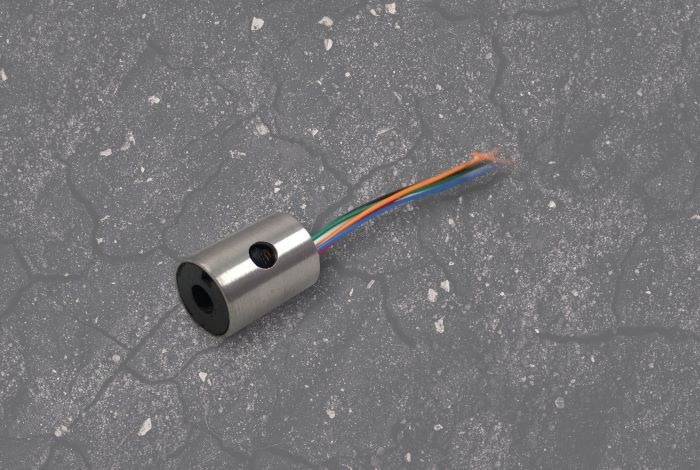NewTek offers a vented design for its miniaturized series of AC- operated position sensors that provides greater endurance to pressure, temperature, shock and vibration. These attributes result in greater accuracy and the ability to fit into restrictive spaces when measuring the deformation of samples in test chambers for hydraulics and material testing applications.

Image Credit: NewTek
In geologic testing, these miniaturized AC-operated position sensors are used to determine the deformation properties of the ground, rock and soil at specific sites. They are also utilized in asphalt testing to evaluate deformation resistance. Additionally, the linear position sensors serve in oilfield exploration to monitor ground deformation caused by fluid extraction or injection, which can threaten the infrastructure of the oilfield.
In operation, the core of the LVDT is mechanically linked to the test sample, while the housing is mounted to a fixed reference point such as a chamber wall. As the test sample deforms, the core moves along with it, changing the output of the LVDT and delivering position data to the operator.
The vented design of the M-375 Displacement Sensors exposes the interior coil assembly, equalizing pressure inside and outside the LVDT. This design enables units to operate reliably in temperature extremes of -65 °F to +400 °F (-54 °C to +204 °C) and pressures of up to 30,000 psi. A lightweight, low mass core and 3/8” diameter make these miniature sensors ideal for high response dynamic measurement required in hydraulic and material testing systems with tight spaces and weight restrictions.
NewTek offers the M-375 Series in ranges from ± 0.025 inch (± 0.63 mm) to ± 2.0 inch (±50 mm). Sensors operate with any conventional differential input LVDT signal conditioner such as the NTC-6000 Qwik-Cal Signal Conditioner that pairs with AC-operated linear to deliver reliable feedback in DC voltage, current and digital outputs including CAN Bus, Modbus and RS-485 for use in materials testing.